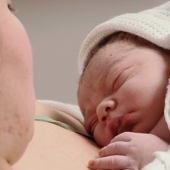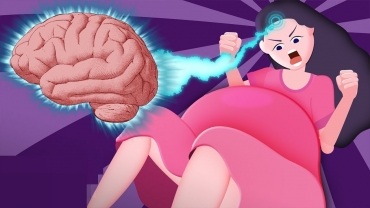What happens in the 29th week of pregnancy? As the levels of prolactin increase in your body, your breasts may secrete colostrum, which can dampen your bra. Prolactin also has a sedating effect, and you may feel the need to take naps the way you did in the first trimester.
Your baby in the 29th week of pregnancy:
- You are probably counting the days because the pregnancy has really gotten more difficult, but the birth is just around the corner, and soon the discomfort and aching back will be gone
- Your baby now is 15.75 inches long and weighs 2.5 pounds
- The baby is almost fully developed but the lungs and the brain are still growing
- The head is starting to get bigger to accommodate the brain
- The baby's head is in proportion with the rest of his or her body
- By the time the birth comes, the lungs will be ready to quit breathing in fluid and take in a lungful of air once he or she has come out
- The bones in the little body are starting to get hard, and the calcium in them is being taken from mom
- Your little ones eyes can move in the sockets and bone marrow is now producing red blood cells
- Your baby when born will be gaining weight from the new white fat that's starting to form beneath his skin
- The white fat provides energy as well as girth to your growing baby
Your body in the 29th week of pregnancy:
As the levels of prolactin increase in your body, your breasts may secrete colostrum, which can dampen your bra. Prolactin also has a sedating effect, and you may feel the need to take naps the way you did in the first trimester.
Your growing uterus may also be contributing to hemorrhoids. These swollen blood vessels in your rectal area are common during pregnancy. Fortunately, they usually clear up in the weeks after giving birth.
Some women get something called "supine hypotensive syndrome" during pregnancy. This happens when lying flat on your back causes a change in heart rate and blood pressure that makes you feel dizzy until you change position.
You might notice that you feel lightheaded if you stand up too quickly, too. To avoid "the spins," lie on your side rather than your back, and move slowly as you go from lying down to sitting and then standing.
- 294 views













